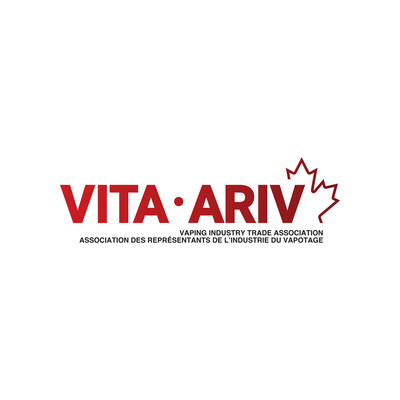Nova Scotia’s real-world experience foreshadows increase in smoking if federal government restricts vaping product flavours
OTTAWA, ON, Sept. 17, 2021 /CNW Telbec/ – The Nova Scotia government has released data that provides real world evidence that banning flavoured vaping products leads to increased smoking. This is critically important to note because Health Canada is considering a similar proposal – and has already acknowledged flavour restrictions may lead vapers back to smoking or prevent smokers from switching to vaping.
“Not often do you get a real world case study of the impact of a potential regulation, but Nova Scotia has provided one and the outcome is clear: ban flavoured vaping products and vapers return to smoking. This is reckless and counterproductive to public health,” stated Daniel David, President of the Vaping Industry Trade Association (VITA).
VITA was responding to Nova Scotia’s Public Accounts released on September 16 which show a 5.6% increase in cigarette consumption in fiscal year 2020-21 (April 1, 2020 to March 31, 2021). This coincides with Nova Scotia’s ban on all flavoured vaping products, which took effect on April 1, 2020. Nova Scotia’s influx of cigarette consumption and decrease in vaping products comes at a time when provinces like Ontario, which does not have comprehensive flavour bans, continues to see a decline in overall cigarette consumption over the same period1.
Meanwhile, Health Canada published draft regulations in June 2021 that seek to ban all flavoured vaping products except tobacco, mint and menthol. The draft regulations include the acknowledgement they might lead to former smokers returning to smoking because of the proposed regulation.
“Health Canada is already aware of the risk that its proposed flavour restrictions would drive vapers back to smoking. Nova Scotia’s experience proves that. Health Canada cannot ignore this and must adjust its approach to prevent this disastrous public health outcome nationally” stated David.
Furthermore, in August, 15 scientists specializing in addictions and tobacco research published an essay in the American Journal of Public Health2 that examines the comparative health risks of vaping versus smoking, concluding that “[B]ecause evidence indicates that e-cigarette use can increase the odds of quitting smoking, many scientists, including this essay’s authors, encourage the health community, media, and policymakers to more carefully weigh vaping’s potential to reduce adult smoking-attributable mortality.”
“Governments should be encouraging smokers to switch to vaping. Instead, as we see in Nova Scotia, poorly conceived government regulations undermines that and drives vapers back to smoking. With this real-world evidence now available to it, it would be unconscionable for Health Canada to repeat this mistake,” stated David.
About VITA:
Canada’s largest trade association representing the industry’s manufacturers, importers, distributors and retailers, VITA is committed to working with stakeholders and governments to set and uphold regulations for vaping products in Canada. VITA’s approach is based on credible evidence, science, facts, and logic. In our efforts to responsibly grow and defend the category, the Association commits to collaborating with Health Canada and other regulatory bodies to identify best practices and to inform the development of evidenced-based regulations.
_____________
1 https://budget.ontario.ca/2021/chapter-3.html
2 https://ajph.aphapublications.org/doi/pdf/10.2105/AJPH.2021.306416
SOURCE Vaping Industry Trade Association (VITA)



